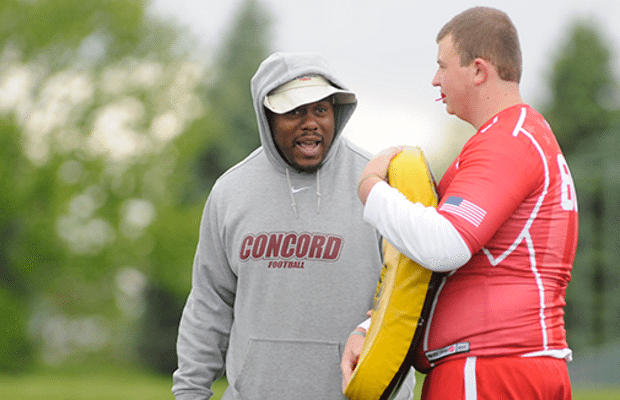Evaluating Your Own Coaching Performance

As we approach the end of the season our coaching heads naturally turn towards the evaluation of past performance rather than planning for future performance.
Our instinct is to evaluate individual player and team performances and outcomes first. This is something we do all the time as coaches. Is this the best place to start? Or should we begin the postseason by evaluating ourselves as coaches?
Monitoring and evaluating your own performance is crucial to improving coaching effectiveness. In turn, this will support the ongoing development and improvement of individual players, team units and your team as a whole.
How do you currently reflect on your own coaching performance? A valuable resource to undertake this is a self-assessment form. Used regularly, this tool can help you:
- Reflect on your coaching performance
- Reinforce strengths and identify areas for development
- Plan for your ongoing professional development
- Plan future coaching programs and individual sessions.
Link to original article in USA Football by Sarah McQuade
There are numerous self-assessment or self-evaluation forms that can be found on the Internet. You may want to personalize or tailor your coaching self-assessment form to include the coaching capabilities you believe are important in your own coaching performance.
In order to create your self-assessment form, make a list of the coaching capabilities that you believe contribute to high-quality coaching performance. For example:
- Plan for individual player performance
- Create a great learning environment for all players
- Give all players optimum practice time
- Observe and analyze performance before diving in to give feedback
- Ask good questions to support player thinking and decision-making
- Praise effort as well as success
- Treat all players with respect
Once you have created your list, prioritize the top 10-15 statements. Reflect on each statement, ranking each on how effectively and how often you integrate it into your own practice. Use a ranking scale from 1–10 with 1 being “not at all” and 10 being “all the time.” You may want to include an additional column that allows you to add comments for what this might mean in practice.
Creating an action plan to support future development is the next step in the process. Identify two to three strengths and two to three areas for development from your reflections.
Finally answer the following questions:
- What have I learned about my coaching practice?
- What will I do next time to improve coaching effectiveness?
- How will I know I have been successful?
Ongoing development and improvement relies on integrating actions into practice and then reflecting on how effectively this has been done. It is a cycle of development. Remember, you don’t have to wait until the end of the season to reflect on your coaching performance; you could do this at the end of each session or week.
Sarah McQuade is an independent coach education consultant, owner and director of e.t.c coaching consultants and co-director with The Coach Learning Group. If you are committed to your own professional development and want to create a detailed plan, follow this link to the Professional Development Planning Course for Sports Coaches (https://www.etccoachingconsultants.com/on-line-learning)
